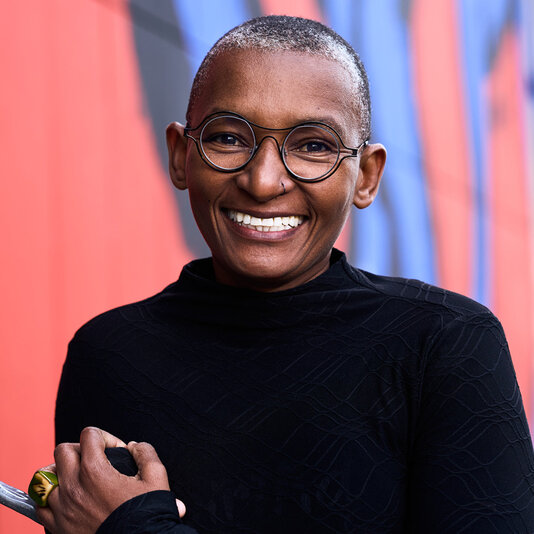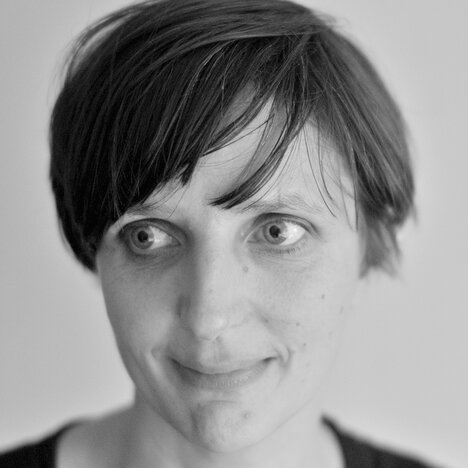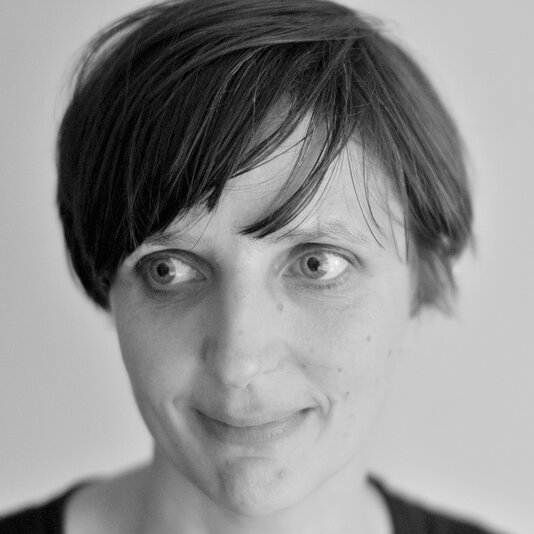
Looking Black lies at the intersection of media, gender, queer and Black studies as a research project that seeks to forge connections between how South African (audio-)visual culture and performance translates to the German experience. In particular, the project seeks to uncover the ways in which relationality between the two locations continuously spark debates about decolonisation, violence, freedom and the Black experience. Two fundamental questions guide this research project:
As a consequence of sometimes overlooked “shared histories”, there is a dialectic relationship between South Africa and Germany. These histories appear in various ways, through politics, political economy, migration, colonialism, apartheid, postcolonialism and decoloniality. Furthermore, they appear strongly in social and cultural relations, either through media, the arts and aspects of public culture. The debates for example in South Africa about statues of colonial figures and street names have also sparked debates in Germany (and Namibia) about such public artefacts, symbols, buildings and representations of history and its presence. Such relationality shows many synergies while simultaneously concealing many differences. It is these meaningful and powerful interrogations, particularly through media and visual cultures, that mobilise two distinct yet interrelated geopolitics and their diverse diasporas.
 ©
© Saskia Uppenkamp
©
© Saskia Uppenkamp
Prof. Zethu Matebeni
University of Fort Hare (South Africa) | Gender and Queer Studies, Sociology
Zintombizethu Matebeni, popularly known as zethu, holds the National Research Foundation (NRF) South Africa Research Chair in Sexualities, Genders and Queer Studies at the University of Fort Hare. With a background in sociology and ethnographic methods, Matebeni has been a catalyst of African queer studies, working at the intersections of race, class, gender diversity, and sexuality in post-colonial Africa. Collaborating with activists, scholars, and artists, they have produced innovative research and interventions on queer issues, critical race studies, and decolonisation, including the #RhodesMustFall Movement and #AlternativeInclusivePride.
Matebeni’s notable works include "Reclaiming Afrikan: Queer Perspectives on Sexual and Gender Identities" (2014), "Queer in Africa: LGBTQI Identities, Citizenship, and Activism"(2018), "Beyond the Mountain: Queer Life in 'Africa's Gay Capital'" (2020), and “Nongayindoda” (2021) in the Journal of Contemporary African Studies. Zethu Matebeni has been Visiting Professor at the Women’s Gender and Sexualities Studies (WGSS) Department at Yale University and at the Marie Jahoda Centre for International Gender Studies at Ruhr University Bochum.
Website

Prof. Henriette Gunkel
Ruhr University Bochum | Media Studies, Transformation of Audiovisual Media

Prof. Henriette Gunkel
Ruhr University Bochum | Media Studies, Transformation of Audiovisual Media
Henriette Gunkel is Professor of Transformation of Audiovisual Media with a special focus on gender and queer theory at the Institute for Media Studies at Ruhr University Bochum. Her research focuses on the politics of time from a decolonising, queer-feminist perspective. She is currently working on a monograph entitled “Sand, Atmosphere, Memorialisation”, which deals with remains in the context of colonial extractivism in the Namib Desert. Recent publications include the anthologies “Futures & Fictions” (Repeater 2017, with Ayesha Hameed and Simon O'Sullivan) and “We Travel the Space Ways: Black Imagination, Fragments, and Diffractions” (Transcript 2019, with kara lynch) as well as the book “Visual Cultures as Time Travel” (Sternberg 2021), co-written with Ayesha Hameed.
Website